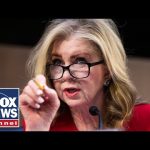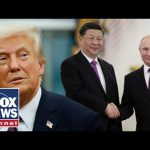Hollywood’s reputation as a bastion of liberal ideology has long presented challenges for conservative actors, and Robert Davi’s recent concerns about being excluded from projects due to his political views have reignited the debate over ideological bias in the entertainment industry. Davi, known for his roles in classics like The Goonies and Die Hard, has openly supported Donald Trump, a stance he believes has led to professional setbacks. His apprehensions about being left out of the upcoming Goonies sequel highlight the broader issue of whether Hollywood’s commitment to diversity truly extends to diversity of thought.
The entertainment industry’s double standard is no secret. While Hollywood champions inclusivity in race, gender, and sexuality, it often shuns conservative voices. Actors like Kevin Sorbo and Antonio Sabato Jr. have openly discussed being blacklisted for their political beliefs, with Sorbo even creating his independent studio to bypass industry gatekeepers. This hypocrisy undermines Hollywood’s claims of being a progressive force for representation and fairness. Conservatives argue that true diversity must include ideological differences, yet many feel silenced or marginalized for expressing views that deviate from the liberal norm.
Despite these challenges, some conservative actors have managed to thrive by connecting with audiences who value talent over politics. Stars like Mel Gibson and Jon Voight have continued working despite the backlash, often finding success in independent projects or faith-based films. The rise of streaming platforms has further leveled the playing field, offering alternative avenues for creators to share their work without relying on traditional Hollywood structures. This shift has empowered conservative filmmakers and actors to carve out spaces where their voices can be heard, free from the industry’s ideological gatekeeping.
At the same time, Hollywood’s increasing entanglement with politics raises concerns about its impact on storytelling. Figures like Kamala Harris and Barack Obama have entered the entertainment space through partnerships with major agencies and production deals, blurring the lines between art and political advocacy. Conservatives worry that this trend could stifle creative freedom by prioritizing political messaging over nuanced storytelling. The risk is that Hollywood becomes less about art reflecting life and more about promoting a singular worldview, alienating audiences who crave diverse perspectives.
Ultimately, Hollywood’s reluctance to embrace ideological diversity undermines its credibility as a cultural leader. Art thrives on a plurality of voices and ideas, and excluding conservatives from the conversation weakens the industry’s ability to tell authentic stories that resonate with all Americans. As streaming services and independent studios continue to grow in influence, they offer hope for a more balanced entertainment landscape—one where talent is judged on merit rather than political affiliation. For actors like Robert Davi, this evolving landscape may provide the opportunity to continue sharing their craft while challenging Hollywood’s status quo.




